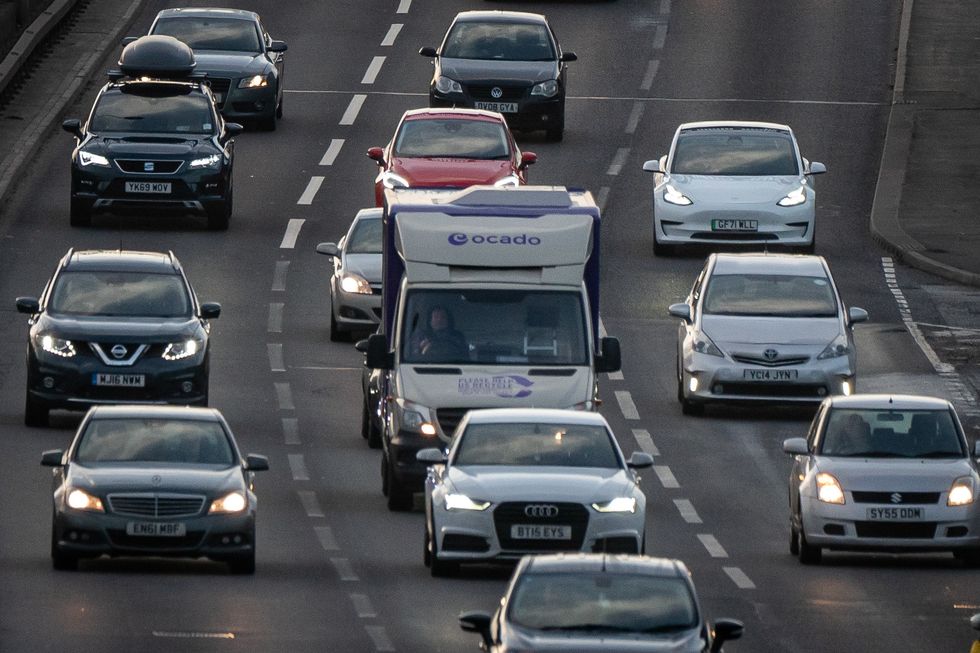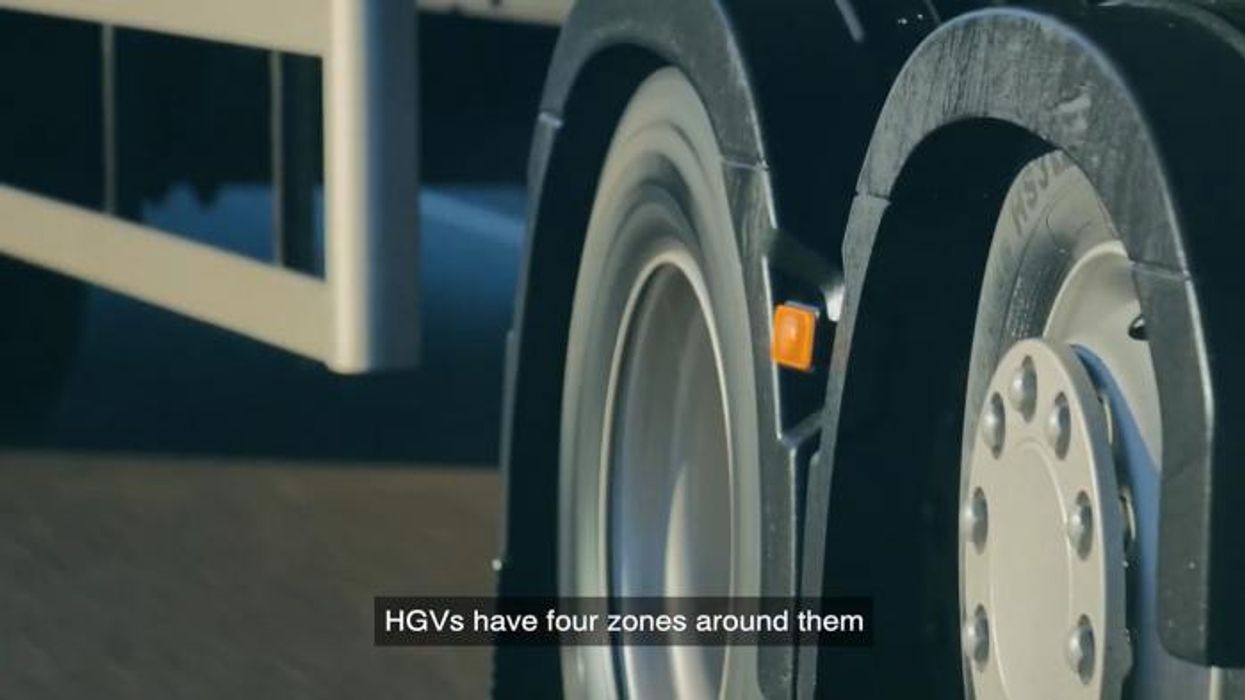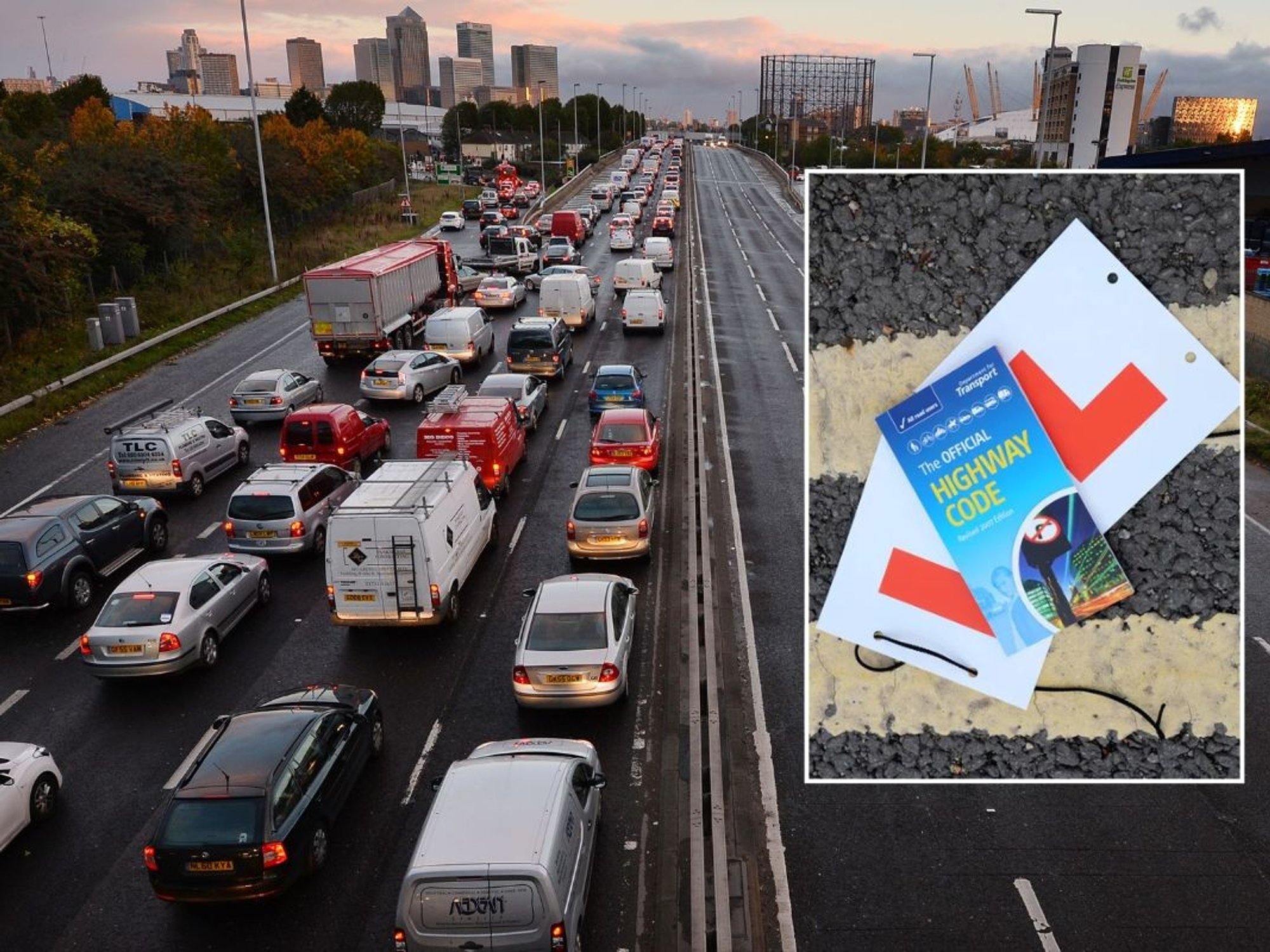New driving rules for larger vehicles enforced today as thousands risk £550 fines

Drivers were given until May 4 to obtain permits to avoid being slapped with new penalties
Don't Miss
Most Read
Drivers have been warned of new safety rules for HGVs, which came into effect today across London, with rule-breakers now facing hefty fines.
The rules require drivers to have installed a Progressive Safe System to obtain valid permits to travel on London roads in a bid to improve road safety.
To help drivers get used to the new rules, an initial grace period was granted by Transport for London (TfL) in October last year, but this ended last night at 11.59pm after which drivers without valid permits could be penalised.
HGV operators who previously held permits for zero, one or two star-rated vehicles with legacy Safe System conditions saw these expire on October 27, 2024.
Do you have a story you'd like to share? Get in touch by emailing motoring@gbnews.uk

Drivers who fail to meet the new safety rules can be fined £550
|GETTY
If a HGV is driven within Greater London without a valid permit, operators may receive a Penalty Charge Notice of up to £550, reduced to £275 if paid within 14 days.
Larger vehicles must now have the Progressive Safe System fitted to receive a new permit under the Direct Vision Standard and HGV Safety Permit Scheme.
The scheme forms part of Mayor Sadiq Khan's Vision Zero plan to eliminate all deaths and serious injuries on London's transport network by 2041. The Direct Vision Standard measures how much an HGV driver can see directly through their cab windows, and is represented as a star rating from zero (limited) to five (good).
This rating is fixed and dependent on the vehicle design, indicating the level of risk to vulnerable road users such as pedestrians and cyclists.
Vehicle star ratings are generally assigned at the point of manufacture and cannot be changed by operators, TfL explained.
The star rating system forms the basis of the permit requirements, with lower-rated vehicles needing additional safety features.
For vehicles not already in TfL's database, operators can self-certify vehicles as zero, one or two stars by providing a written statement including their name, vehicle registration mark, vehicle make and model, and confirmation of the star rating.
Newly registered vehicles should start the permit application process as early as possible, even if the new Vehicle Registration Mark is not yet known to TfL.
Under the Progressive Safe System requirements, HGVs must be fitted with specific safety equipment to protect vulnerable road users.
This includes a Blind Spot Information System and a Moving Off Information System to alert drivers to potential hazards.
Left-hand drive HGVs must also meet these requirements, with mirrors, cameras and sensors fitted appropriately to account for the blind spot on the right-hand side of the vehicle.
TfL also recommended that legacy sensor equipment fitted as part of the former 'Safe System' launched in 2019 is deactivated or removed when installing the new Progressive Safe System.
LATEST DEVELOPMENTS:
- Cycling law changes to prosecute dangerous riders who kill pedestrians are 'unlikely to improve road safety'
- HMRC introduces new VAT fuel charges today with petrol and diesel drivers facing costs of £2,314
- Motorists urged to make 'simple' changes to help increase car values by £1,000 - 'Always pays off'

TfL offered a six-month grace period until May 4 2025, for drivers to obtain a permit
| PAThe scheme covers most of Greater London and is in operation 24 hours a day, every day of the year. All lorries over 12 tonnes gross vehicle weight entering or operating in Greater London need to hold a valid HGV safety permit to avoid receiving a penalty.
Applying for a permit is free of charge, but operators must ensure their vehicles meet the required safety standards. TfL can revoke or suspend a permit if a vehicle that has been granted one is later found to be in breach of the permit terms.
Some vehicles are entitled to exemptions from the HGV Safety Permit Scheme, including specialist construction vehicles built mainly for off-road use, such as telehandlers and mobile cranes.











